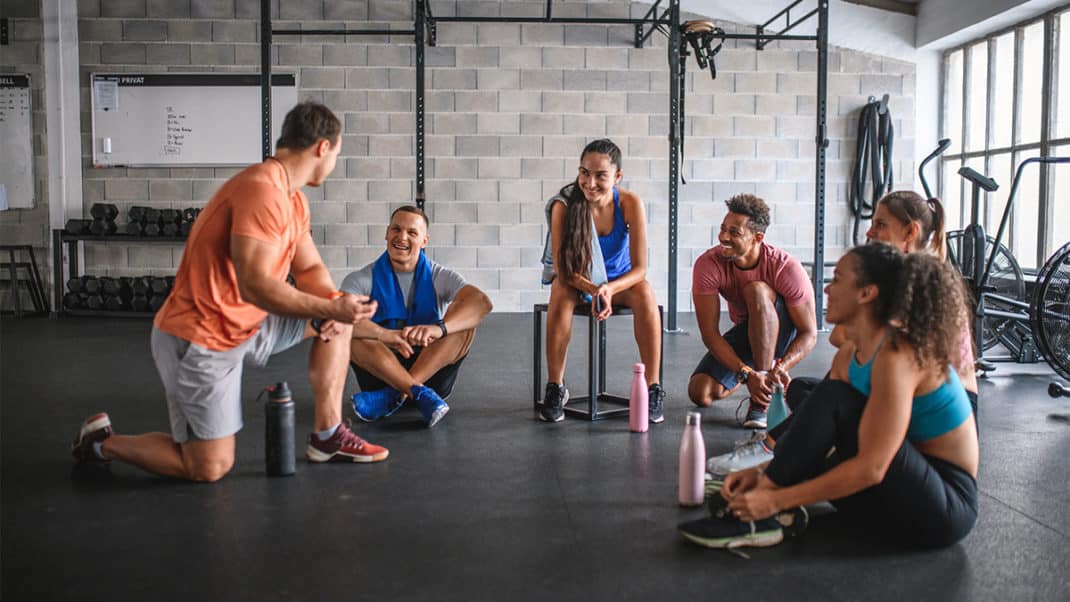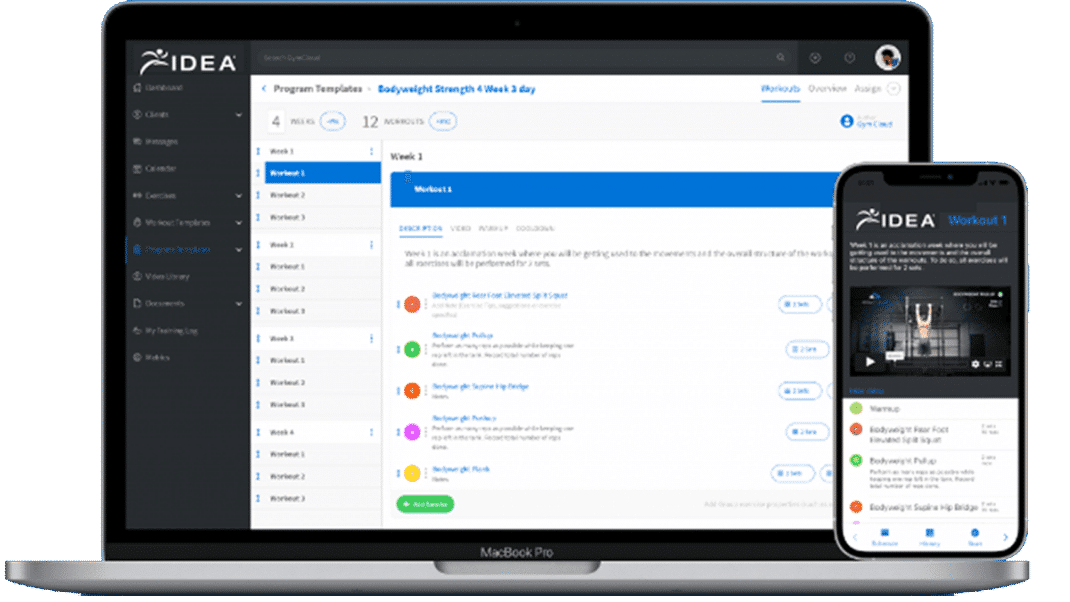Upgrade Your Career With Personalized Fitness
Fitness facility business models are less viable today than they were before the pandemic, but it’s not too late to adapt.

Like any industry, fitness has evolved over the past decade. Fitness professionals have improved their nutrition acumen while expanding their understanding of behavior change and how that fits into program design and goal setting. The idea of being a coach rather than a trainer has also gained favor, along with many other education paths. This shift ushers in a fresh perspective that includes training the individual as a multidimensional being instead of just using a template you can “plug and play.”
However, it may be time to ask if coaching as a career has developed in efficient or effective ways, or whether it has splintered focus for many fitness pros, making it more difficult for them to home in on a clear strategy for clients. You could argue that the change from the trainer mindset to the coach mindset has created more stress for some, which leads to the question: How can we upgrade the coaching career path? And how does the pandemic factor into the equation? The wellness landscape is shifting, and people are looking for an opportunity to finally make those changes they’ve been talking about. The answer may lie in personalized fitness.
Disruption as Opportunity
Boutique fitness was on the rise before COVID-19 shut down gyms and kept people outdoors and away from others. This created a massive disruption in the fitness industry as gyms large and small faced bankruptcy and closure. While many trainers took their services online, many struggled with adapting their services, learning new platforms and offering the right price point. Some were able to make the transition and thrive, while others were not.
As trainers tried to pivot and consumers ordered every dumbbell and kettlebell available, the pandemic highlighted the dismal state of health in the United States. Now, as the long-term ill effects of infection become better understood, the pandemic is providing a massive opportunity to change the way we think about health and fitness. People need to understand how their lifestyle and nutrition affect their health, and they need professional support and guidance on how to make appropriate changes.
How does the health and fitness industry fit in here? Many facilities and trainers attract people who are already relatively fit and healthy, while those who most need help stay away, intimidated by marketing messages and the perceived uphill battle of making lifestyle changes. COVID-19 leveled the playing field, in a way, and showed us we need to change the way we Inspire the World the Fitness®.
See also: How to Audit Your Customer Experience
Meeting the Individual with Personalized Fitness
It’s imperative that we begin seeing clients as individuals and that we strive to meet their needs through a holistic model that addresses training, nutrition and lifestyle behaviors. It’s no longer enough to create a workout for someone and say that we’ve done our job; no matter what a client’s goal is, it needs to be viewed through the lens of a full 24-hour day, including the person’s job, social circle, eating habits, bedtime routine and more.
Personalized fitness means being a coach who is dedicated to helping clients reach their goals in ways that honor the individual, which is tough to do in a class or when addressing just one aspect of health (e.g., workouts, nutrition or lifestyle). The fitness coach adopts a dedicated, comprehensive, multifaceted and consultative approach, which includes reviewing physical health (past and present), along with goals for the future, while also considering lifestyle details that may affect clients’ ability to be at their best.
With a personalized approach, clients receive workouts that are tailored to their goals and limitations, whether the latter stem from an injury, a busy work schedule or lack of access to a gym. They also receive nutrition guidance that aligns with their training, goals and preferences.
A key piece of the puzzle comes through the meet-and-greet process, where clients identify aspects of lifestyle—such as sleep, stress and daily movement—that can be upgraded to improve health. It is the recommendations offered in these areas, when folded into the monitoring and guidance present throughout the workout and nutrition program, that provide the competitive differentiator. In this way, coaches help clients make small changes over a long period of time, resulting in sustainable habits and ongoing progress.
See also: The Ongoing Dilemma: Specialize or Diversify?
Adapt and Expand
Instead of being a pivot point, the current situation may be more of a full reset for some. During the lockdown, some fitness entrepreneurs invested in themselves by expanding their education and getting a coaching certificate or something more advanced. The sea change brought on by the pandemic is washing up a lot of new ideas about how to help people improve their lives. For example, it’s important to be able to guide clients to the right resources and refer someone out to a trusted network when necessary. The ability to build trust with clients so they come to you for assistance with other life challenges is extremely valuable, and trainers should not shy away from connecting with professionals in adjacent fields, including massage therapists, physical therapists, physicians, mental health practitioners and more.
Another way to build trust and provide concierge-type, personalized fitness services is to fine-tune assessments and then revisit them on a quarterly basis to ensure that clients’ needs are being met and to acknowledge and celebrate accomplishments. Tech-savvy clients may be open to tracking biometric data, which is the epitome of personalization. Weave in information from wearables or leaderboards to help people pinpoint granular areas that need improvement. However, never forget that true personalization lies in one-on-one connection and authentic care.
The time is now for a reckoning on how the industry moves forward in a way that truly addresses the public health challenges facing our country. It’s not enough to offer a one-size-fits-all program. People need to understand how their lifestyle choices negatively affect their health, and they need a trusted fitness professional to lead them on their new path to optimal wellness.
See also: 21 Best Practices to Help You Survive the New Normal
Shayna Dunitz
Shayna Dunitz is chief operating officer at Central Athlete, a client-centered strength and conditioning facility in Austin, Texas, where she combines her passion for running, health and wellness with her ability to bring order and efficiency to a growing company.





